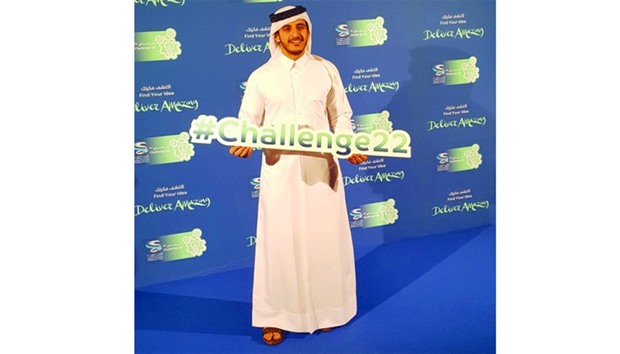Programmes like Challenge 22 are providing people from the Middle East the opportunity to make a telling contribution to the future of the region and ‘give back’ to their countries, according to a prominent Qatar University (QU) academic.
Dr Somaya al-Maadeed, head of computer science at the university’s College of Engineering, is a winner of the 2015 edition of the Supreme Committee for Delivery & Legacy’s innovation competition.
As a proud Qatari, she says the programme has given her, and many others like her, the opportunity to contribute to the growth of her home country.
“Of course I want to see my project become successful and commercialised,” she told www.sc.qa. “But what is most important to me is to see a product from Qatar grow and be used across the world.
“This would be a perfect example of Qatar turning towards knowledge-based success. I’ve received a lot support from the state – in terms of scholarships and academic funding – so I would love to give back.
“My dream is of course to see my product developed and implemented in the stadiums in Qatar, but it is not only for football stadiums – it can also be used in airports and many other places that require entry systems.”
Dr Somaya also said that providing a platform for local scientists, entrepreneurs and inventors is equally as important, as the country strives to reach its vision of becoming a knowledge-based economy by 2030.
“I think it’s very important to Qatar if we get the chance to develop these ideas here,” she continued. “It’s important that we are providing people in this country with the facilities, mentorship and support to be able to do so. That is something that Challenge 22 does very well.
“QU supports a number of research projects. The outcome is mostly research papers on these projects. In very rare cases some get patents from this project. So what do we do next? That is the question.
“We must develop these ideas into products and help to take Qatar from an economy based on oil and gas to a knowledge-based economy. Qatar is focused on this, and this is what Challenge 22 also helps with.”
After completing her undergraduate and master’s degrees in Qatar, Dr Somaya travelled to Nottingham, England to complete a PhD. She returned to her homeland in 2004, and undertook various research projects over the next 12 years.
Her life’s work has centred around biometrics in areas such as handwriting, face and fingerprint recognition. In 2015 her ‘Smart Identity Management for Smart Stadiums’ project allowed her to take this vast catalogue of research to the next level, as she became a winner of the inaugural Challenge 22 competition.
As well the financial, logistical and promotional opportunities Challenge 22 provides to winners (and finalists), it also offers business development mentorships. Something which, Dr Somaya says, has proved invaluable.
“It was always abstract research that I was involved in. We didn’t have time to implement it is as a product,” she continued.
“What is important and exciting about Challenge 22 is that it has given us the chance to develop our idea into a product – and it is a challenge for us because I am doing this for the first time. I have 20 years’ experience in research, but I don’t have experience in product development.
“The SC came to Qatar University to discuss Challenge 22. I had several ideas already, and because it was the mid-year break, fortunately I had time to think about what I wanted to do and write the proposal.”
Although unable to go into specific details about her project due to a pending patent, Dr Somaya was keen to emphasise just how valuable the business development assistance she has received has been to her.
“Shortly after that I found out I would go through to the next stage, and it was then that I was put in touch with to a consultant, because I did not have any experience in writing a business plan,” she added.
“This mentorship part of the programme really helped me advance the proposal, and it was available even before I became a winner.”

